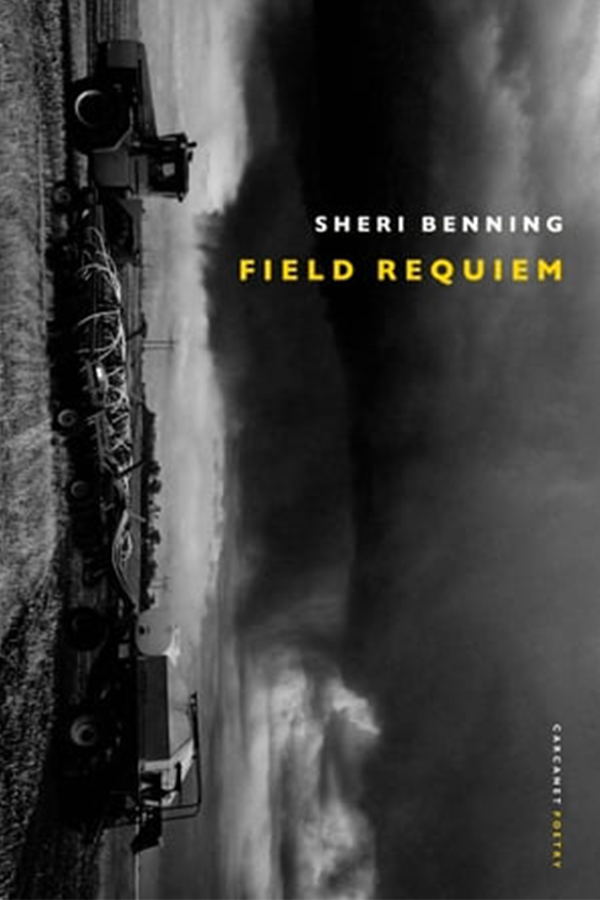Sheri Benning grew up on a farm in central Saskatchewan. During her lifetime, agriculture on the prairies shifted from farms like her family’s 160 acres to ones measured in thousands of acres and cultivated by industrial methods. This powerful book, written with intelligence, love and artistry, is a requiem for a lost landscape, way of life, and community, as well as lost individuals—family, friends, and community members. It is also a heartfelt critique of exploitative techniques that destroy so much in bringing abundance to market.

The work could have fallen into sentimentality. It does not. Benning acknowledges the original theft on which this way of life was built, and her clear and honest eye sweeps in the pain and shortcomings of the old way of life as well as its wonders. The book could have moved into diatribe. It does not. The anger and grief of the fourth section are tempered by an understanding of the forces that drive farmers from family farms.
Language from the Catholic liturgy of Benning’s upbringing introduces most of the five sections and provides titles for numerous poems. The words of ritual connect the story of this book to universal human yearnings and a deeper human history. They weave into the work a feeling of unity.
The poems themselves, in graceful free verse of acute imagery and sensual detail, create intimacy between reader and subject. For a friend who died too young, Benning writes, “For the long-limbed dance of you, / your hair in my mouth, rye-and-coke breath, drugstore shampoo, / baby-powder sweet stink of you” (“Kelly Wiens”). The poem’s ending illustrates how Benning commands specialized dictions to emotional effect: “O Kelly, // for the flora of you: the kingdom, the phylum, / sugar, yeast, virus, spore / of you.” Her poems on abandoned farmsteads and the individuals who lived there (real or richly imagined) are complemented by haunting photos by Benning’s artist sister.
Lists of prairie plants, as in the poem about her mother called “Vespers,” convince of Benning’s deep familiarity, and ring as incantation: “ditch grass – fescue, brome, spear, / bluestem, blue-eyed, hip-high sow-thistle, coyote-scat cairns, creeping smoke of pasture sage.” But she ties description tightly to human experience, in this case a visit with her mother to the abandoned graveyard where parishioners had “tucked in your nameless sisters. No stones / to mark graves, but a wind-gnawed cross, / prickly rose budding in sun-cured cow shit, / tiger lilies, lit flares.”
In this, Benning’s fourth book of poetry, almost all the poems are worthy of comment at length. But a review must be short. Know that her skilled application of poetic technique, empathy for a wide variety of lives, and informed and daring imagination have combined for a book rooted in place that is of interest far beyond. Grieve with her for “the gypsy light of stars and farms.”
Bios

Jean Van Loon
Jean Van Loon is an Ottawa writer and a graduate of Carleton, Queen’s, Humber, and UBC. Her second poetry book, Nuclear Family, was published by McGill-Queen’s University Press in April 2022. Her first, Building on River (Cormorant, 2018), was a finalist for the Ottawa Book Award. Her story, “Stardust”, published in the Queen’s Quarterly, was included in Journey Prize Stories 19. Her stories, poems, and reviews have appeared in magazines from coast to coast. [updated in 2023]

